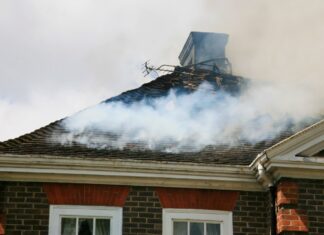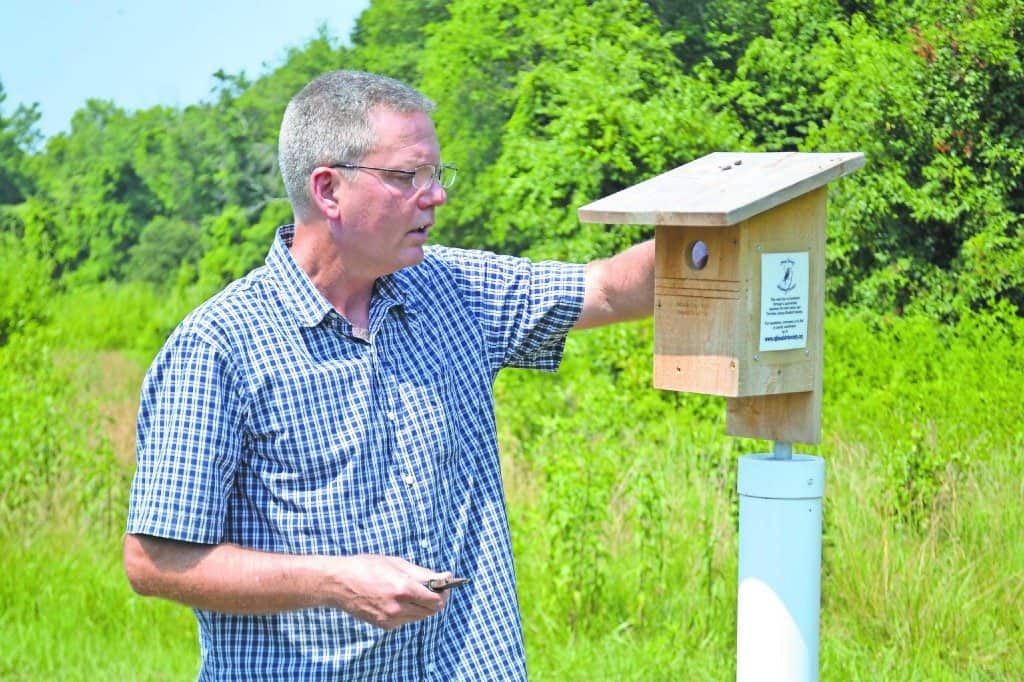
Specialized boxes are built to keep predators away, encourage nesting
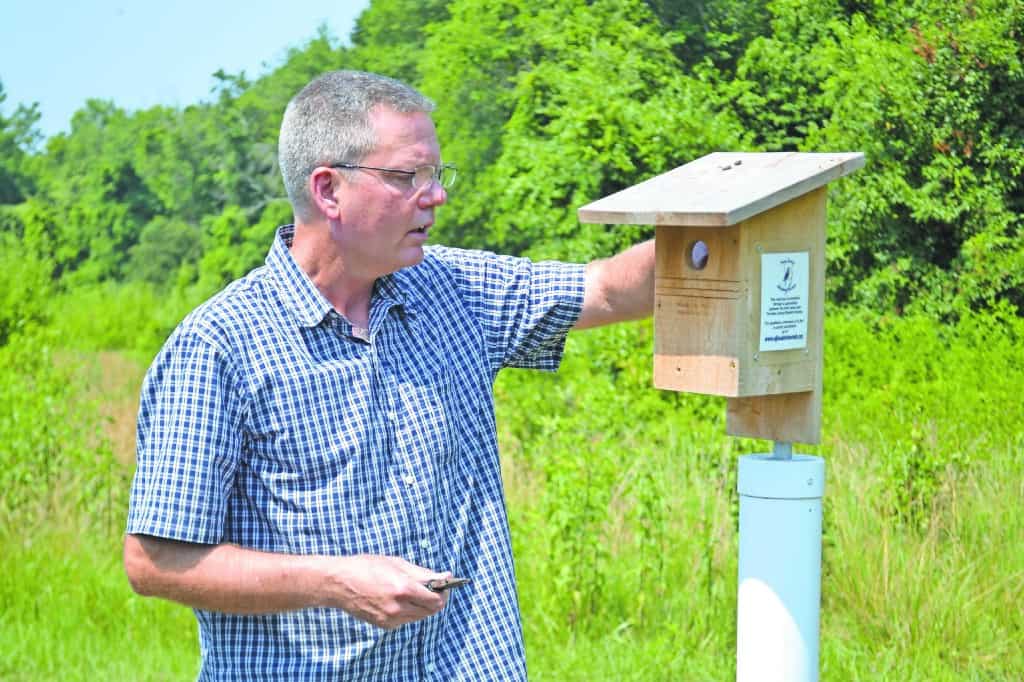
In an effort to boost the bluebird population, the Gloucester County Nature Club partnered with the New Jersey Bluebird Society and local environmental clubs to build bluebird boxes across the county.
The bluebird boxes are little birdhouses on posts with a guard to stop predators such as snakes and raccoons from breaking into the box. The hole to get into the box is one and one quarter inches in diameter, allowing the bluebird to fit while stopping predators from entering. They are strategically placed in parks and open spaces around the township where the bluebirds have access to trees and wooded area. Dave Gilcrest, the Gloucester County coordinator of the New Jersey Bluebird Society, described how they choose an area.
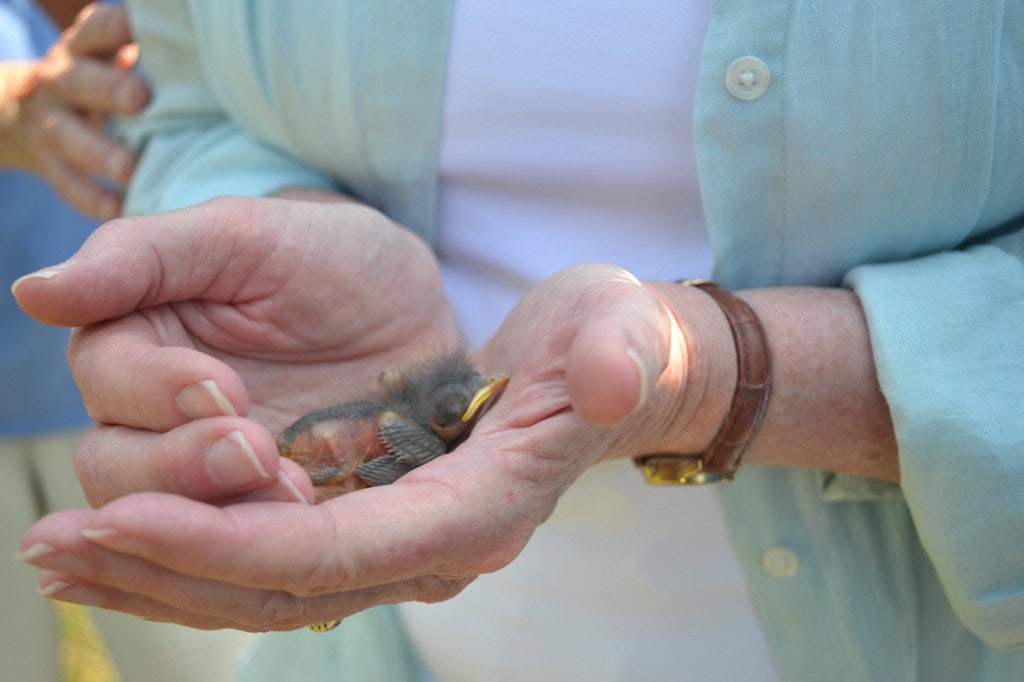
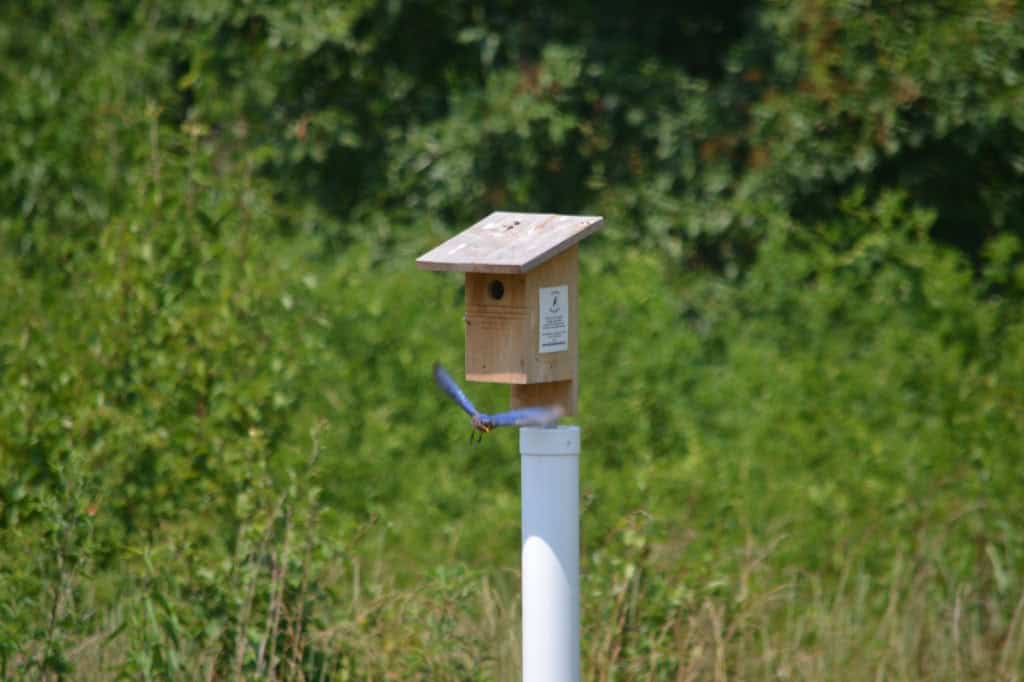
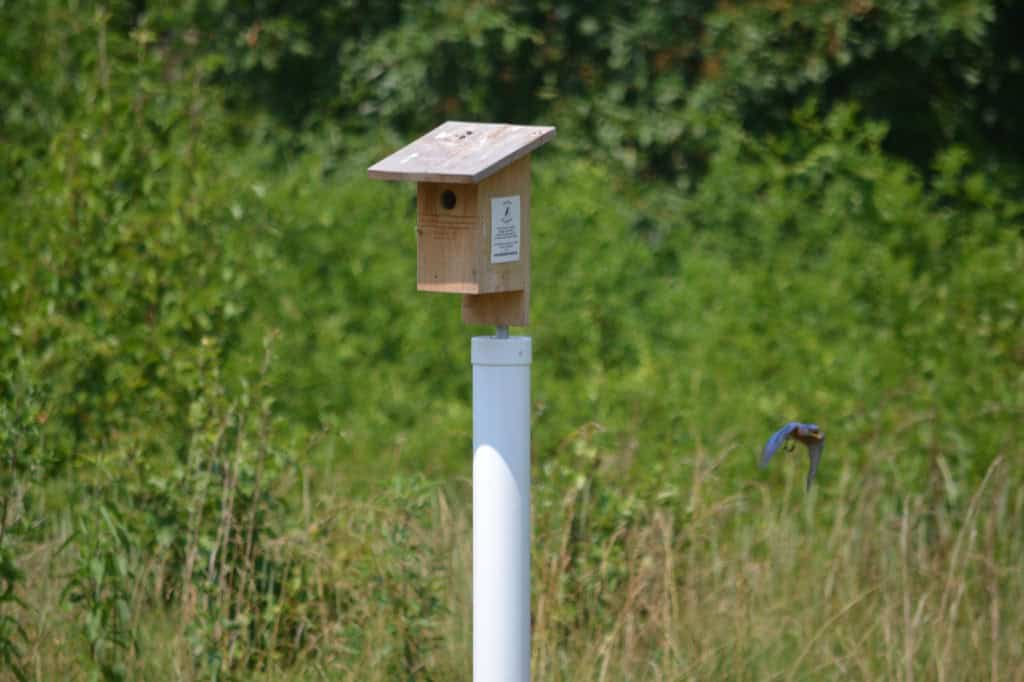
“There’s an open — low-grass area, with plenty of perching area for adults,” Gilcrest said. “They don’t mind human interaction so that’s not an issue.”
With a new box comes a volunteer to monitor the boxes to see if bluebirds are using it. Gilcrest spoke of the importance of the monitors.
“It’s important to monitor the box between five and seven days to determine when eggs are laid,” he said. “Bluebirds lay one egg per day and they hatch 14 days after the last egg is laid. We have seven to 12 days to safely band the birds.”
The band is a sequential number that is placed on the leg of the bluebird for tracking purposes but is not harmful to the bird. If the bird is recovered, it can be traced back to the day and location it was banded. The seven to 12 days is crucial for the banding because their skeletal system is strong enough to be handled but they are small enough so they won’t fly away when the box is opened.
The goal of the boxes is to provide habitat to sustain and increase population for the bluebirds. Gilcrest illustrated the nesting habits of the bluebirds.
“Bluebirds are cavity nesters, they can’t make their own cavities,” he said.
“They find holes in trees or manmade bluebird boxes to make their nest in. As habitat diminishes and becomes less available, it’s good to put out manmade boxes to supplement where the bluebirds can nest.”
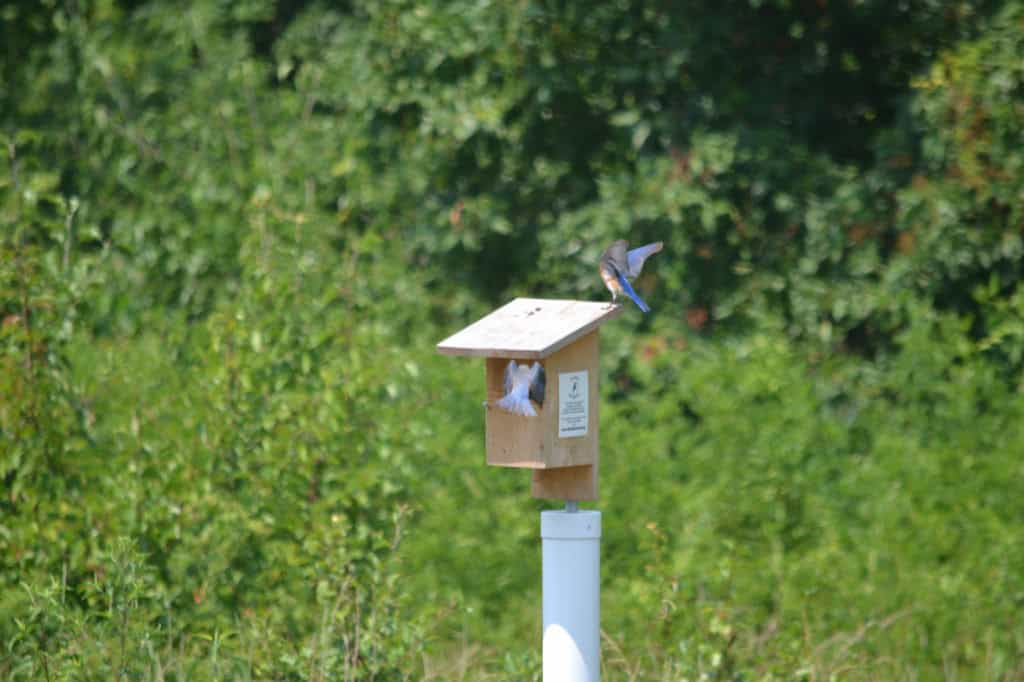
The newest bluebird box, located on Winchester Drive in Sewell, produced its first hatchlings in late June. A native bluebird laid three eggs in that box, which is good considering it was only built on April 12.
“It’s a first-year box so it can take a while for the bluebirds to find it,” Gilcrest said. “They can have up to three broods a season.”
Gilcrest added a bluebird can lay up to six eggs at a time — so one bluebird can lay up to 18 eggs in a season.
Gilcrest said he has banded 110 bluebirds this season, which runs from late March to the end of July. He added the bluebird boxes don’t have to be in township-owned space. Residents can contact the New Jersey Bluebird Society if they want to have a representative see if their space could support a box.
For more information, contact Gilcrest at [email protected] or visit www.njbluebirdsociety.org.






